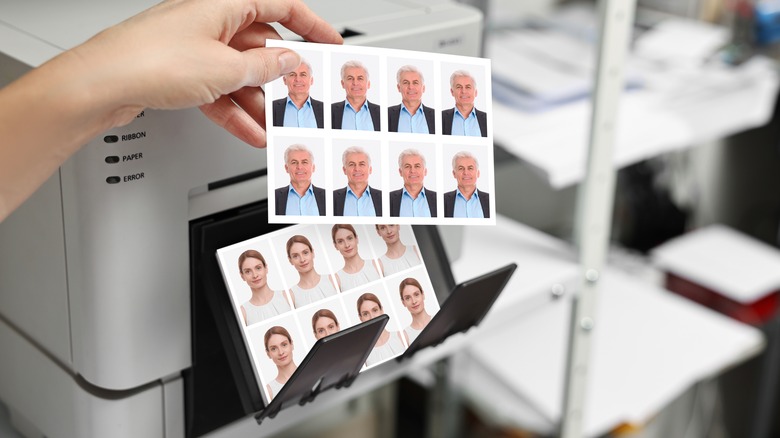Rick Steves Says To Bring Copies Of Your Important Documents With You On Vacation (Except For This One)
Preparing travel documents is all part of the Rick Steves-approved checklist to always do before traveling. And, on his travel website, the expert recommends taking photos or making photocopies of your most important paperwork and data to serve as backups. "I like to both pack along a hard copy and have a digital version available on my phone," he writes. Additionally, Steves also recommends that travelers "leave a physical copy with someone at home in case of an emergency." However, there's one type of documentation he says you should never carry photographic evidence of.
"Don't copy a debit or credit card," he warns. "Instead, keep just the number in a retrievable place." And preferably a secure one at that, such as in a password protected smartphone app, or inside a folder of hard-copy documents you store in your hotel room's safe. After all, in the wrong hands, a copy of your credit or debit card could lead to fraud and theft. In fact, ATM skimming is one of the most frustrating scams you may encounter in Europe.
Thankfully, you don't need the expiration date and security PIN to cancel a card, should you ever need to. Just having the number will be enough. In fact, several members of Steves' travel forum have vouched that you shouldn't need more than the last four digits of the card. Beyond that, they also recommend keeping these stored along with the phone numbers listed on the back for reporting a lost or stolen card. While it's smart to have backups of identity documents and even carry hard copies of prescriptions and travel itineraries, it does seem that copying financial cards is an unnecessary risk you'll want to avoid.
The document copies Steves recommends you bring
The primary documents Rick Steves recommends making copies of include your passport and visa information, car-rental voucher, and any prescriptions for eyewear and medicine. He also recommends that those traveling with companions carry physical copies of their partner's documents, too, since the primary person in question will have the originals in hand. For digital copies, in addition to your phone's own Files app, you can store your info on the cloud or on Dropbox. Alternatively, you can also send yourself an email with photos of everything included as attachments.
Having copies of your documents on hand will help you if you're robbed while traveling, or even if you just happen to misplace something. You can also leave physical copies with a trusted relative back home if you're traveling light or you're worried they won't be safe. Unless you're carrying a money belt, or have a safe in your hotel room, you may want to consider this option. However, Steves confesses: "I hide mine in a pouch clipped into the bottom of my luggage (don't tell anyone)." You could also keep them in a plastic bag, zipped within the inside lining of your suitcase.
Lastly, Steves suggests bringing copies of your passport pictures as well — you should have received at least two copies when you had them taken — since they can come in handy should you need to replace your passport overseas. Although the local U.S. embassy can expedite one for you, you'll have to provide them with photos when you submit your request. Plus, you can also bring physical copies of your itinerary — including hotel and car-rental confirmations — which Steves suggests can "come in handy if technology isn't cooperating when you need it."

